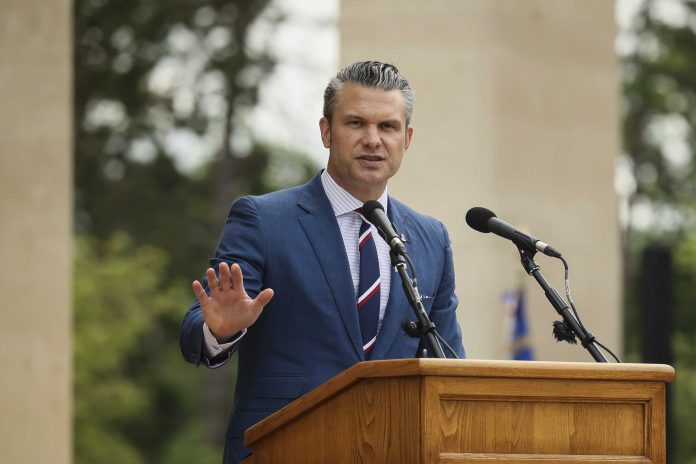
By TARA COPP
Associated Press
WASHINGTON (AP) — The Pentagon’s watchdog is looking into whether any of Defense Secretary Pete Hegseth’s aides were asked to delete Signal messages that may have shared sensitive military information with a reporter, according to two people familiar with the investigation and documents reviewed by The Associated Press.
The inspector general’s request focuses on how information about the March 15 airstrikes on Houthi targets in Yemen was shared on the messaging app.
This comes as Hegseth is scheduled to testify before Congress next week for the first time since his confirmation hearing. He is likely to face questions under oath not only about his handling of sensitive information but also the wider turmoil at the Pentagon following the departures of several senior aides and an internal investigation over information leaks.
Hegseth already has faced questions over the installation of an unsecured internet line in his office that bypassed the Pentagon’s security protocols and revelations that he shared details about the military strikes in multiple Signal chats.
One of the chats included his wife and brother, while the other included President Donald Trump’s top national security officials and inadvertently included The Atlantic’s editor-in-chief, Jeffrey Goldberg.
Pentagon press secretary Kingsley Wilson had no comment on Friday, citing the pending investigation. The inspector general’s office didn’t immediately respond to a request for comment.
Besides finding out whether anyone was asked to delete Signal messages, the inspector general also is asking some past and current staffers who were with Hegseth on the day of the strikes who posted the information and who had access to his phone, according to the two people familiar with the investigation and the documents reviewed by the AP. The people were not authorized to discuss the investigation and spoke on the condition of anonymity.
Democratic lawmakers and a small number of Republicans have said that the information Hegseth posted to the Signal chats before the military jets had reached their targets could have put those pilots’ lives at risk and that for any lower-ranking members of the military it would have led to their firing.
Hegseth has said none of the information was classified. Multiple current and former military officials have said there is no way details with that specificity, especially before a strike took place, would have been OK to share on an unsecured device.
“I said repeatedly, nobody is texting war plans,” Hegseth told Fox News Channel in April after reporting emerged about the chat that included his family members. “I look at war plans every day. What was shared over Signal then and now, however you characterize it, was informal, unclassified coordinations, for media coordinations and other things. That’s what I’ve said from the beginning.”
Trump has made clear that Hegseth continues to have his support, saying during a Memorial Day speech at Arlington National Cemetery in Virginia that the defense secretary “went through a lot” but “he’s doing really well.”
Hegseth has limited his public engagements with the press since the Signal controversy. He has yet to hold a Pentagon press briefing, and his spokesman has briefed reporters there only once.
The inspector general is investigating Hegseth at the request of the Republican chairman of the Senate Armed Services Committee, Sen. Roger Wicker of Mississippi, and the committee’s top Democrat, Sen. Jack Reed of Rhode Island.
Signal is a publicly available app that provides encrypted communications, but it can be hacked and is not approved for carrying classified information. On March 14, one day before the strikes against the Houthis, the Defense Department cautioned personnel about the vulnerability of the app.
Trump has said his administration targeted the Houthis over their “unrelenting campaign of piracy, violence and terrorism.” He has noted the disruption Houthi attacks caused through the Red Sea and the Gulf of Aden, key waterways for energy and cargo shipments between Asia and Europe through Egypt’s Suez Canal.
The Houthi rebels attacked more than 100 merchant vessels with missiles and drones, sinking two vessels and killing four sailors, between November 2023 until January this year. Their leadership described the attacks as aimed at ending the Israeli war against Hamas in the Gaza Strip.















